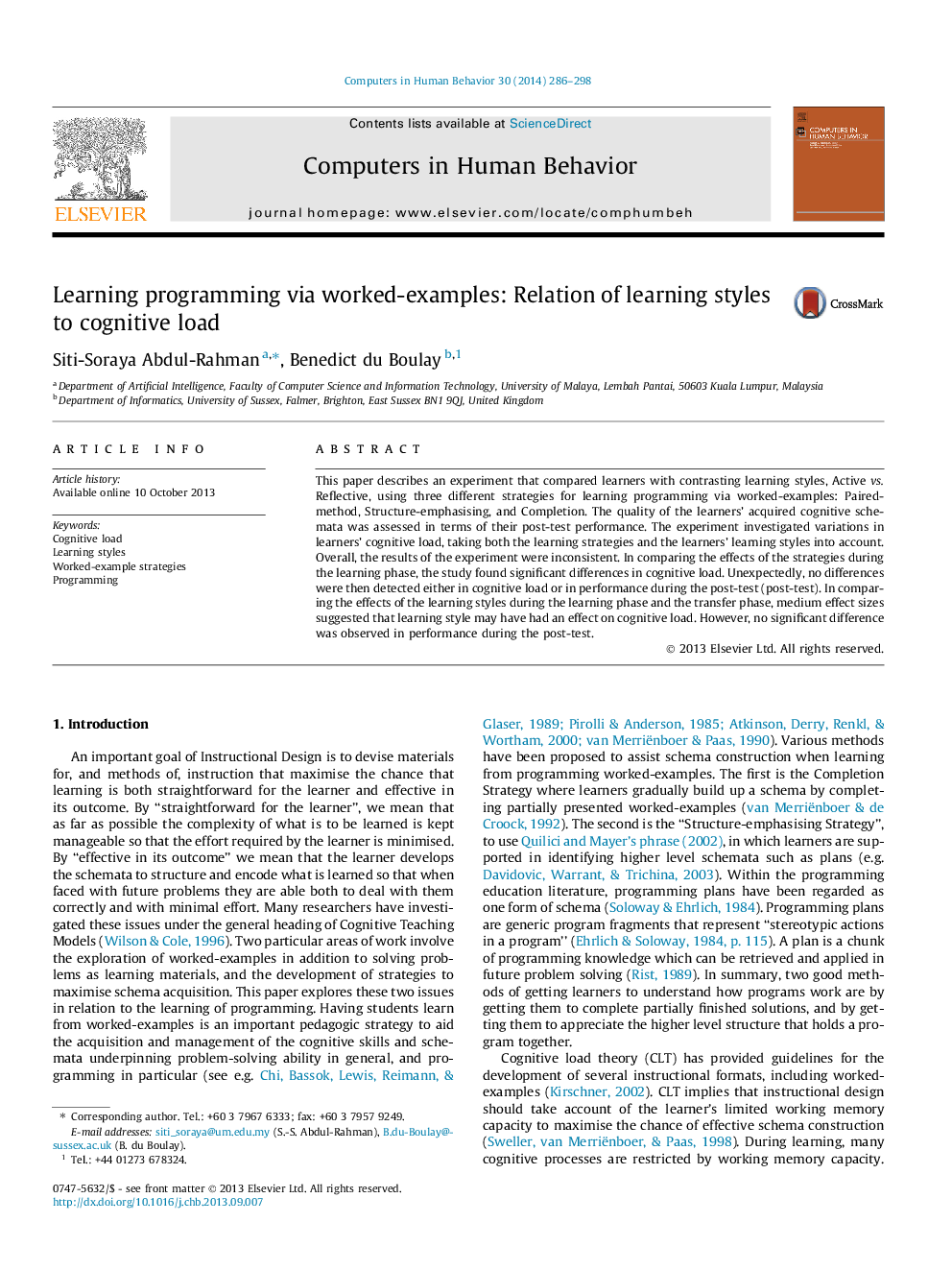| کد مقاله | کد نشریه | سال انتشار | مقاله انگلیسی | نسخه تمام متن |
|---|---|---|---|---|
| 350676 | 618455 | 2014 | 13 صفحه PDF | دانلود رایگان |
• Demonstrate how learning styles, show an effect on learners’ cognitive load.
• Investigate learners’ cognitive load, taking learning styles/strategies into account.
• Results revealed differences in experienced cognitive load during learning.
• No differences detected during post-tests (and post-tests performance).
• Learning styles might have interacted with learners’ cognitive load.
This paper describes an experiment that compared learners with contrasting learning styles, Active vs. Reflective, using three different strategies for learning programming via worked-examples: Paired-method, Structure-emphasising, and Completion. The quality of the learners’ acquired cognitive schemata was assessed in terms of their post-test performance. The experiment investigated variations in learners’ cognitive load, taking both the learning strategies and the learners’ learning styles into account. Overall, the results of the experiment were inconsistent. In comparing the effects of the strategies during the learning phase, the study found significant differences in cognitive load. Unexpectedly, no differences were then detected either in cognitive load or in performance during the post-test (post-test). In comparing the effects of the learning styles during the learning phase and the transfer phase, medium effect sizes suggested that learning style may have had an effect on cognitive load. However, no significant difference was observed in performance during the post-test.
Journal: Computers in Human Behavior - Volume 30, January 2014, Pages 286–298
